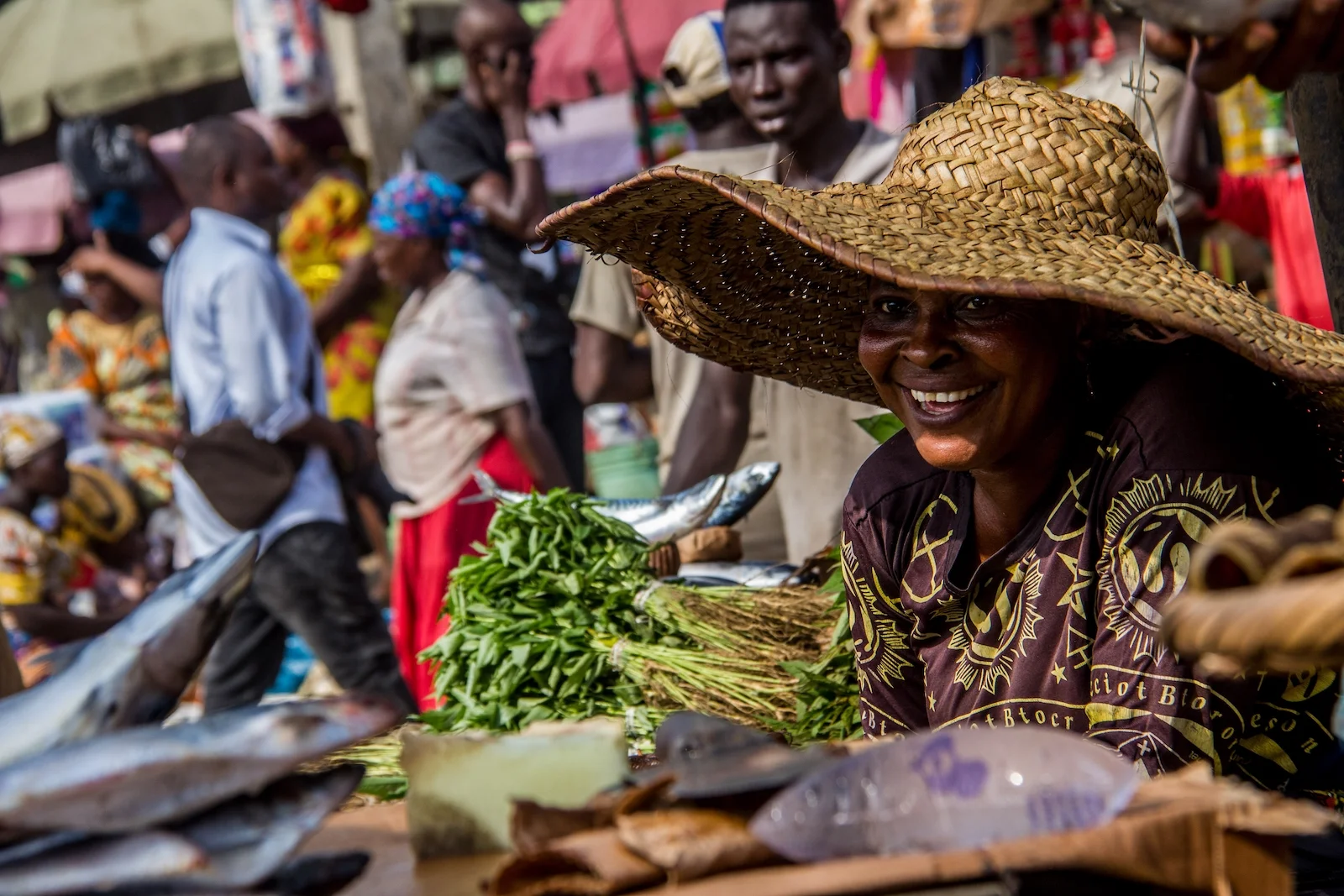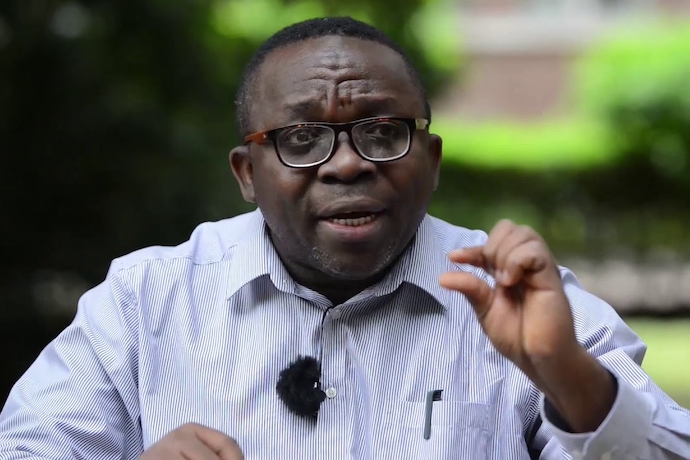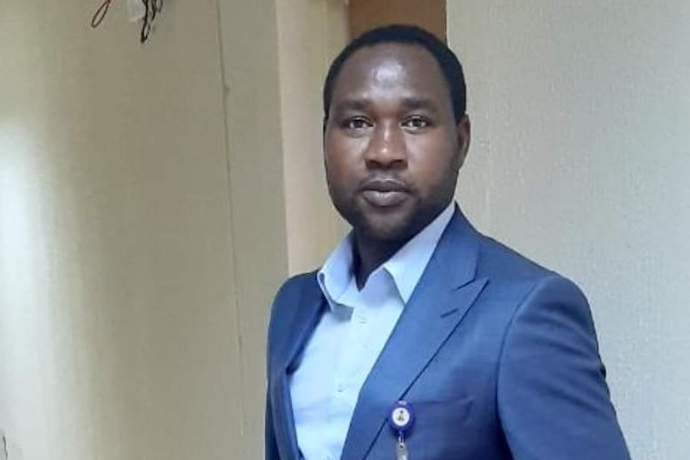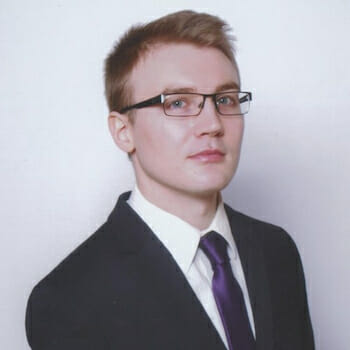
Culture
Mubarak Bala and the Struggle for Freethought in Nigeria
Scott Douglas Jacobsen: Today, I’m honored to be joined by Dr. Leo Igwe, a renowned humanist and activist visiting from Ibadan, Nigeria. Dr. Igwe has spent much of his career championing the rights of those unjustly accused of witchcraft across Africa. We’ve known each other for years, and it’s always a privilege to speak with him.
Our focus today is the recent release of Mubarak Bala, the former president of the Humanist Association of Nigeria, who spent nearly five years imprisoned on charges stemming from a Facebook post. The ordeal began when Bala’s post—interpreted as critical of the Prophet Muhammad—drew the ire of S.S. Umar & Co., who filed a complaint alleging the content was “provocative and annoying.” Soon after, plainclothes officers, operating without a warrant, seized Bala from his home in Kaduna and transferred him to Kano, where he faced blasphemy charges under the region’s strict religious laws. His case bears striking similarities to other international incidents involving so-called cybercrime and blasphemy, such as that of Ayaz Nizami.
Now that Bala has been released, this case raises critical questions about freedom of expression and belief for humanists, atheists, and ex-Muslims in Nigeria.
Dr. Igwe, how do you interpret the implications of Bala’s lengthy imprisonment? What does this case reveal about the state of human rights and the ongoing struggle for religious and ideological freedom in Nigeria?

Dr. Leo Igwe: Mubarak’s case involves many issues. First, it highlights how regressive Nigeria remains, especially regarding the practice of Islam within the country. The form of Islam practiced in Nigeria could be described as “Stone Age Islam.” It remains trapped in medieval mindsets reminiscent of the era in Europe when the Church persecuted so-called ‘heretics’ or ‘blasphemers.’
Many people shy away from making this comparison. Still, within the Nigerian context, Christianity is comparatively more tolerant than Islam in terms of human rights and freedom of expression. Of course, Christianity has its issues, such as dogmatism and authoritarianism. Still, it is unprecedented in the history of Christianity in Nigeria for someone to be subjected to such extreme abuse for simply posting a critical remark about the Prophet. Mubarak’s case exemplifies the state of Islamic practice in Nigeria and the broader failure of the country to respect its citizens’ rights to freedom of religion, belief, and expression.
Jacobsen: In addition to ex-Muslims, atheists, agnostics, and humanists, what other groups in Nigeria face comparable forms of discrimination? This question carries considerable weight, given that Nigeria is the most populous nation on the African continent. Developments within its borders inevitably have a far-reaching impact across Africa as a whole.
Igwe: It is crucial to understand that in parts of Nigeria where Muslims dominate, Christians are often in the minority and frequently find themselves on the receiving end of accusations of blasphemy, sometimes even resulting in killings. Christian minority groups and individuals in northern Nigeria also face much of the persecution and violence Mubarak endured.
For example, we must remember the tragic case of Deborah Samuel, a college student in Sokoto. She made an innocuous comment on a WhatsApp group, which some Muslim students found offensive. This led to her being brutally attacked and killed by a mob. This incident serves as yet another example of how intolerance manifests in various forms across Nigeria, particularly in regions with significant religious tensions.
Her colleagues—fellow students—abducted her, beat her to death, and set her ablaze. This happened, I believe, in 2022. This shows that it is not just ex-Muslims who are subjected to these accusations and abuses. Christians within regions where Muslims are the majority are often targeted and killed.
That is exactly what happened in Mubarak’s case. Before they could get to him, the police “disappeared” him and placed him in what they called protective custody. But then you must ask yourself: who were they protecting him from? They were protecting him from the fanatics who could kill him at any moment.
But let us not forget Muslim minorities, too. It is not only Christian minorities or Christians in the region who are accused; Muslims belonging to minority sects, denominations, or traditions are also targeted.
We see allegations, attacks, killings, and other abuses targeting Muslims from minority traditions, Christians who live in these regions, and, in this case, Mubarak, who came out as an atheist or ex-Muslim. Of course, other ex-Muslims have been targeted. Still, some manage to neutralize the threats by moving away from social media or underground. What we have seen in Mubarak’s case is unprecedented in the country’s history.

Jacobsen: I’m aware of other cases like Zara Kay’s. She briefly appeared at the World Humanist Congress in Copenhagen. While not explicitly Tanzanian, she has Tanzanian heritage, much like I have Dutch heritage without being explicitly Dutch. Right? Zara was arrested while traveling, though her ordeal was much shorter than Mubarak’s. You mentioned similar cases earlier.
It’s a strange paradox—Mubarak’s case is unprecedented in Nigeria, which offers both an unsettling reality and a sliver of hope. On the one hand, this case represents the extreme, signaling the potential for cultural shifts toward more tremendous respect for the rights of nonbelievers. On the other hand, such incidents still occur. You captured this tension well in your recent BBC interview, saying, “Thanks, but no thanks.” Could you expand on that sentiment? I am deeply grateful for Mubarak’s release, but a lingering sense of injustice tempers its gratitude.
Igwe: Yes, of course. Arresting someone, disappearing them, unjustly prosecuting them, and sentencing them to 25 years in jail—this is a gross violation of human rights. In other words, Mubarak was meant to spend 25 years in prison for committing no crime. On appeal, his sentence was reduced to five years.
Of course, we are thankful that the sentence was reduced and that he wouldn’t spend 25 years behind bars. But no thanks because even the years he did spend in prison were unjust. He committed no crime, and there was no justification for him to spend even one second behind bars.
Just because someone makes an innocuous statement and expresses their rights like every other human being, clearly stating what they believe, there should be no justification for any arrest, incarceration, or prosecution. No one should spend even one day in jail because of that. That is why I said we are happy, at least partly because, as the saying goes, the worst did not happen.
Many people thought the fanatics might invade the jail, kill Mubarak, or carry out the threats they made. In Nigeria, we have had cases where fanatics invaded police detention centers and beheaded alleged blasphemers or desecrators of the Quran. We have also seen instances where mobs beat someone to death, lynched them, or set their body ablaze. These are not rare occurrences. But in Mubarak’s case, none of this happened.
So, yes, we are happy that he came out alive. At least he survived. But we are not happy about the circumstances. We are still at a point where someone cannot express what they think about a religion, its Prophet, its teachings, or its holy book without needing police protection. This situation is deeply out of step with civilization, enlightenment, and progress.
We cannot be excited about this. It is a sad reality that, in the 21st century, Africans—who endured slavery under both Arabs from the East and Westerners from the North—are now killing fellow Africans in the name of religion. These religions, the Abrahamic religions, were introduced by those who once enslaved us. And now, people who embrace these religions are perpetuating violence against their people simply to express their thoughts about the religion.
It is shameful. Instead of progressing, we should be working toward an African enlightenment—one that is critical and highlights the dark and destructive tendencies in Islam, Christianity, and all religions used to sanctify abuse and slavery, whether by non-Africans or by Africans against Africans. True enlightenment can only come from Africa, but it will remain unattainable as long as we continue placing individuals in protective custody simply because they are critical of these religious traditions.
We are holding ourselves back. We have internalized our inferiority, subordinating our humanity to the traditions of those who have historically tyrannized us. Worse still, we now use these same traditions to reinforce tyranny—not only over us but also by us. This is the direction we need to change. This is the path Africa must take to achieve true progress and liberation.
For me, this is a double tragedy. We must rally support, energy, and momentum to shake off this double tyranny. Otherwise, African enlightenment—that unique sense of enlightenment only Africa can deliver to the world—will never materialize.
Jacobsen: As Africa increasingly connects to the digital world, we’re talking about hundreds of millions of young people coming online. Meanwhile, much of the world is aging, with older populations less equipped to navigate the evolving tech landscape. Given equal access and opportunity, Africa’s youth could fully engage in—and even drive—the rapid, exponential growth of digital innovation.
Africa’s cultural and technological contributions could soon profoundly transform global communication and perspectives. This is particularly crucial as we witness the centralization of power in key sectors like communication technology. Such centralization rarely serves democratic interests. In the United States, power is concentrated among a handful of tech giants, predominantly led by men of European descent. Russia’s power structures revolve around a long-established oligarchy under the Kremlin. In China, state authority is consolidated under Xi Jinping’s rigid, state-controlled Marxist ideology.
Africa’s role in this equation is not merely cultural—though preserving and expanding indigenous languages and traditions are invaluable. It’s also geopolitical. Africa could become a critical counterbalance to the rising tide of autocracy that has defined much of the 2010s and 2020s. A freer, more diverse digital sphere may hinge on this contribution.
I realize I don’t have a specific question. Please share your thoughts on these dynamics and the role Africa might play in shaping a more democratic and inclusive online future.
Igwe: The thing is this: how much light does the centralization of power—whether in the United States, China, or Russia—shed on Africa and toward Africans? Whether it’s the authoritarian tendencies in China’s government, the oligarchy in Russia, or the centralization of power in a democracy in the United States, how does that enhance the humanity of Africans? For me, this is the central question.
I completely disagree with the idea that these centralized, oligarchic, and dictatorial systems somehow improve or enrich the lives of Africans. While diversity in terms of languages and cultural contributions is important, these global power centers continue to crush and take a heavy toll on the humanity of Africans.
In China, Africans are not reckoned with. In Russia’s oligarchy, the same thing happens. Even in the Trump administration, you could see similar tendencies. So, where is Africa in all of this? Where are Africans in these global systems?
These centralized powers—whether democratic, authoritarian, or oligarchic—still perpetuate systems that disregard and dehumanize Africans. That is the reality we must confront.
It is still the same old idea—that if you look like me if you are African, you should remain on the margins. You should be waiting for these oligarchic, dictatorial, and totalitarian systems to tell you what to do, where to be, what to say, and what not to say. And now, we are witnessing another form of blasphemy. What is it? It is this: do not offend these secular “gods” or so-called “god-sent” authorities.
If you offend them, they will come after you. Just like in Mubarak’s case, they will disappear you with impunity, or they will compel you to admit guilt, even when you know you are innocent. So, what is the hope?
The hope lies in the same courage we have seen throughout history. If we go back to Plato’s Allegory of the Cave, it took immense courage for some to bring the light into the cave, even as they faced resistance from those still inside. Or consider the European Enlightenment, during a time when the Church held absolute control. Totalitarian regimes and authoritarian systems eventually collapsed, giving way to freer, more equal, and more just societies. This was only possible because people dared to not only speak out but to speak their minds.
It comes down to this: What do Africans think? What do we think? Just as Mubarak expressed his thoughts about the Prophet, asking what we want for ourselves is essential. What do we believe?
We’ve seen this dynamic play out in other parts of the world. For instance, consider the ongoing conflict between Russia and Ukraine. Despite Russia’s overwhelming power, the question remains: What do the people of Ukraine think, and what do they want for themselves? Similarly, when figures like Trump or other dictators rise to power, they seem to project an impregnable dominance. But you know what?
There is power in words. The idea that “the pen is mightier than the sword” holds. Words, thoughts, and ideas can tear down physical or metaphorical walls. History has shown us this repeatedly. The walls of dictatorships and totalitarian regimes have fallen before, and they will fall again.
That is why Africans who understand their words’ power, worth, and place in the world must never stop speaking out. What they think and express might be the first crack in a seemingly impregnable wall of oppression. Slowly and steadily, these walls can fall—just as we saw in Germany with the collapse of the Berlin Wall.
If walls can collapse in Germany, they can collapse elsewhere. They can give way to a society, a world where people are freer—whether they look like me, like you, or like someone else entirely. It all comes back to freedom. Without freedom, there is nothing.
If one part of the world lives freely while another part lives as enslaved people, none of us are truly free. We must continue to do our part to expand the circle of freedom despite the efforts of totalitarian systems to control the world and keep some people subdued and subordinate forever.
Slavery ended. And just as slavery ended, so too can these oppressive systems. The walls collapsed. Even the Soviet Union collapsed. So why can’t all oppressive systems collapse, too? There is still hope that the remnants or replicas of these survived systems will eventually go the same way. It will always return to freedom—a quest for a freer society and world.
Jacobsen: Leo, thank you for agreeing to this interview.
Igwe: My pleasure.

